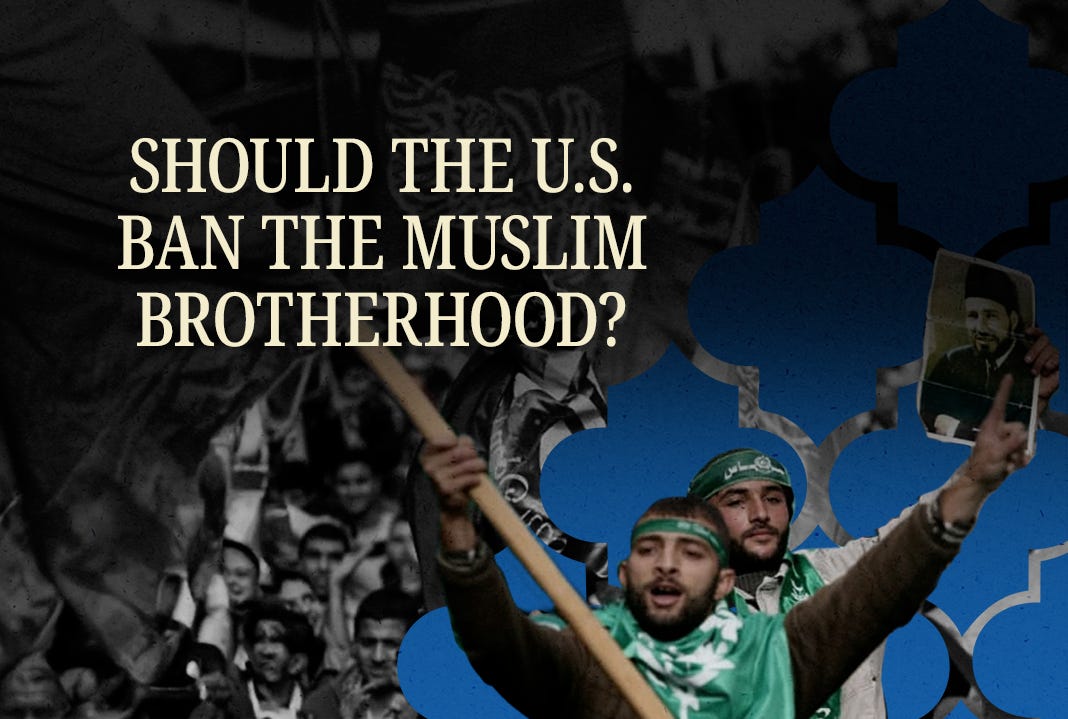Should the U.S. Ban the Muslim Brotherhood?
The push to ban the Muslim Brotherhood exposes the tension between national security and constitutional freedoms
Last week, the Institute for the Study of Global Antisemitism and Policy (ISGAP) hosted a panel featuring Syrian writer Ammar Abdulhamid (one of the coauthors of this piece), Jordanian analyst Ghaith al-Omari, and Haras Rafiq, ISGAP’s Senior Advisor. The event focused on the Muslim Brotherhood’s enduring influence in the Middle East and the United States—specifically its central role in shaping antisemitic narratives across the region. As two individuals who have watched the Brotherhood’s ideology seep across borders and generations, we find this charge difficult to dispute.
The threat posed by the Muslim Brotherhood is no longer just ideological. In the wake of a violent attack in Colorado—where an Egyptian national allegedly injured multiple pro-Israel demonstrators and was later found to have expressed support for former Muslim Brotherhood–affiliated President Mohamed Morsi—calls are once again intensifying on Capitol Hill to designate the Brotherhood as a terrorist organization.
Senator Ted Cruz and Congressman Jared Moskowitz have both vowed to push for the designation. MAGA influencers are demanding sweeping deportations of Muslims. The Trump administration, now in its second term, has wasted no time: Soliman’s wife and five children are reportedly in ICE custody and could be deported imminently. A new travel ban is being floated. The debate has escalated from geopolitics to policy—and from policy to panic.
Yet amid the rhetorical and legal fervor, we risk missing the deeper, more complicated truth.






